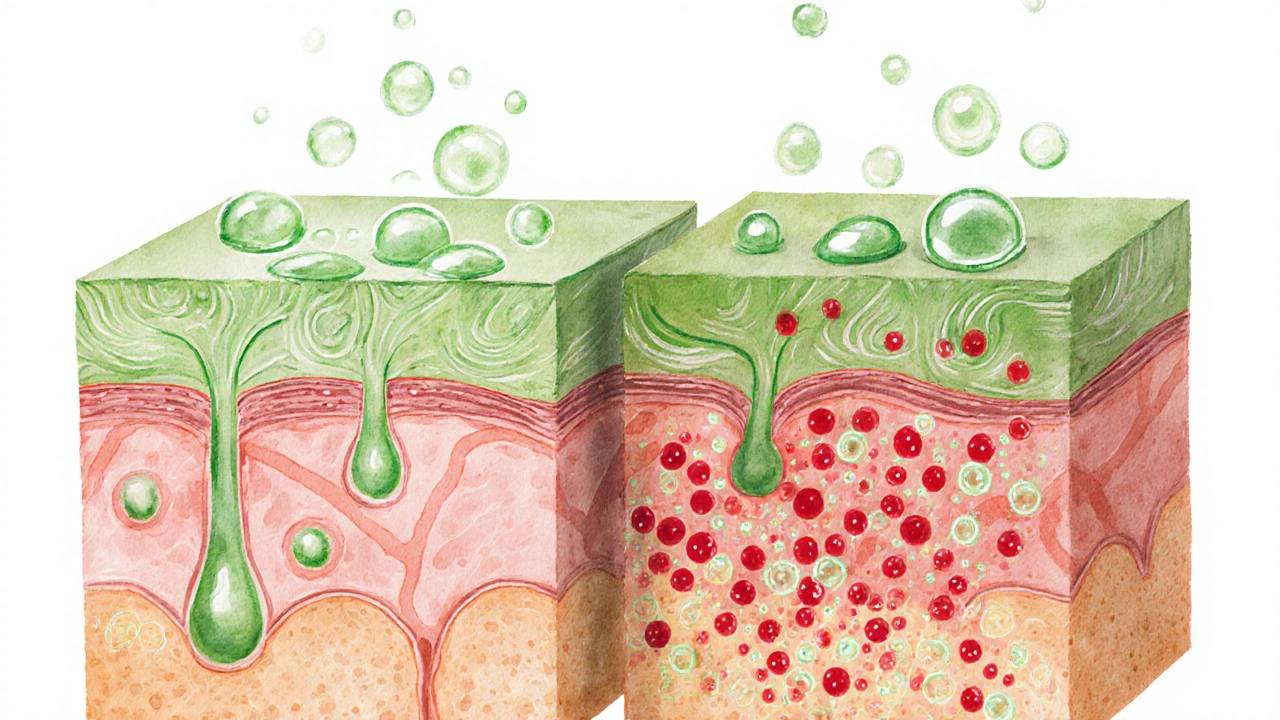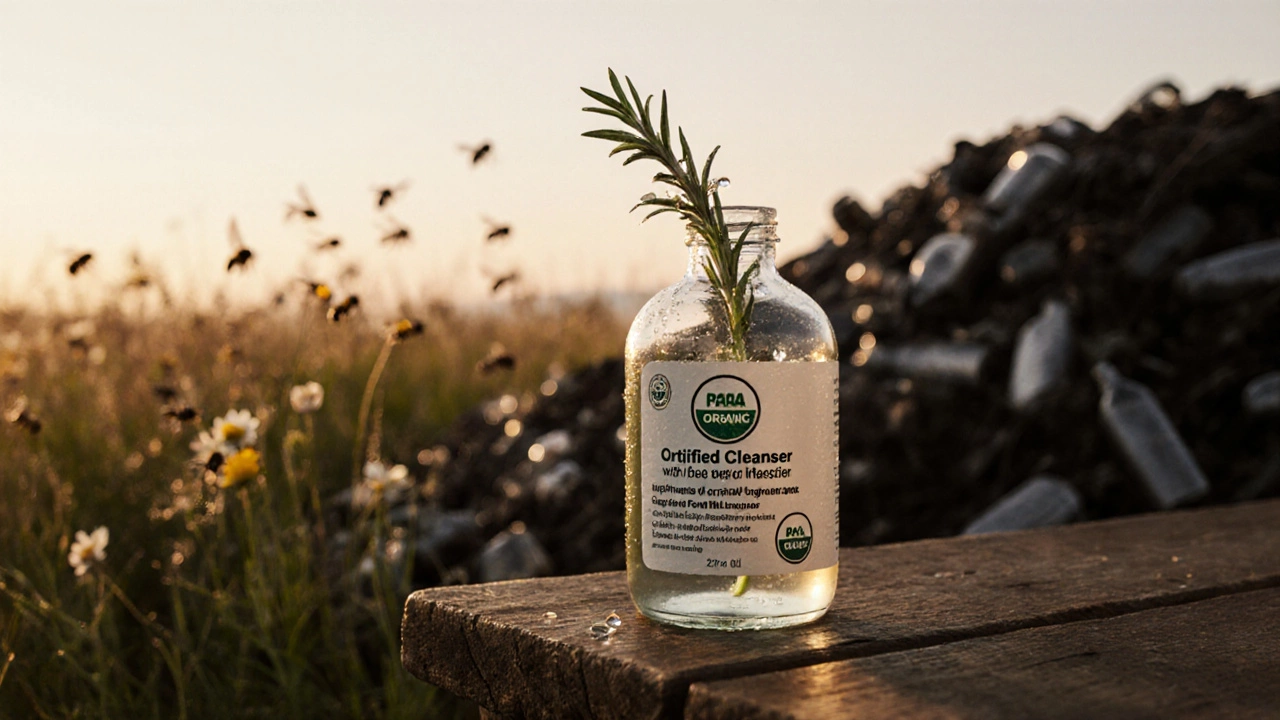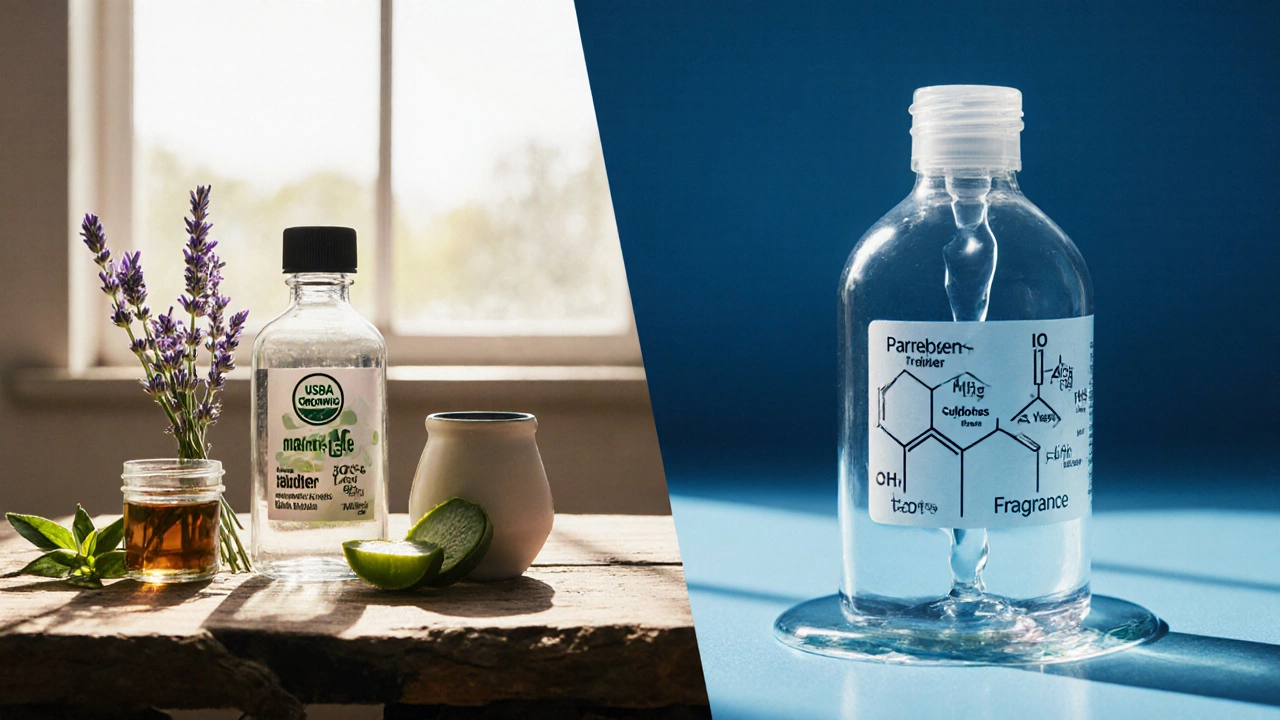Key Takeaways
- Organic skincare avoids synthetic pesticides, GMOs, and many controversial additives.
- Clinical studies show modest benefits for barrier repair and irritation reduction, especially for sensitive skin.
- Not every natural ingredient is safe; fragrance oils and certain plant extracts can still trigger reactions.
- Look for credible certifications, transparent ingredient lists, and third‑party testing.
- Choosing organic can also lower your environmental footprint through sustainable farming and packaging.
What Exactly Is organic skincare-products formulated with ingredients grown without synthetic fertilizers, pesticides, or genetic engineering and processed without prohibited synthetics?
When you see a bottle labelled “organic,” the claim usually refers to the raw botanical material, not the whole formula. In many markets, a product must contain at least 95% certified organic ingredients to bear the label, while the remaining fraction may include non‑organic carriers or stabilisers. The idea is to deliver the benefits of plants grown in healthier soil while steering clear of chemicals that could irritate the skin or the environment.
How Does It Differ From conventional skincare-products that may contain synthetic pesticides, GMOs, and a broader range of chemical additives?
In a conventional formulation you’ll often find:
- Parabens-preservatives used to extend shelf life, linked to endocrine disruption in some studies
- Sulfates-detergents that create foam but can strip natural oils and damage the skin barrier
- Petroleum‑derived emollients such as mineral oil or dimethicone
- Synthetic fragrances that may contain dozens of undisclosed chemicals
Organic brands, by contrast, tend to replace those with plant‑based oils, butter, and natural preservatives like tocopherol (VitaminE) or fermented radish extract. They also avoid synthetic fragrances-often a blend of undisclosed chemicals that can irritate the skin unless they clearly list a botanical source.
Impact on skin health-Barrier Function and Microbiome
The skin barrier is a thin lipid matrix that keeps moisture in and pollutants out. When harsh surfactants strip these lipids, irritation and transepidermal water loss increase. Organic formulas that use milder surfactants (e.g., decyl glucoside) and incorporate antioxidants-compounds like green tea polyphenols and vitaminC that neutralise free radicals can support barrier repair.
Recent research from the University of California (2023) showed that volunteers with mild eczema who switched to an organic moisturizer experienced a 22% reduction in flare‑ups over eight weeks, compared with a control group using a conventional product. The study highlighted a calmer skin microbiome-the community of beneficial bacteria that live on the skin’s surface, likely because fewer harsh chemicals allowed native microbes to thrive.

Environmental and Ethical Advantages
Choosing organic isn’t just about skin; it’s also about the planet. Organic farms avoid synthetic pesticides, which reduces runoff into waterways and protects pollinators like bees. Many brands also commit to sustainable packaging-materials such as recycled glass, post‑consumer plastic, or biodegradable paper. A 2022 life‑cycle analysis found that a typical organic cleanser packaged in post‑consumer recycled PET generated 30% less CO₂ than a conventional counterpart in a non‑recyclable plastic bottle.
Furthermore, the “cruelty‑free” promise is common among organic labels, meaning no animal testing at any stage. This aligns with a growing consumer base that values ethical sourcing as much as ingredient purity.
Common Myths and Pitfalls
While organic sounds perfect, it’s not a free‑pass to safety. Here are three misconceptions to watch out for:
- All natural equals non‑irritating - Essential oils like tea tree or citrus can cause sensitisation, especially in high concentrations.
- Organic means preservative‑free - Without a preservative, a product can harbor bacteria. Look for natural but effective preservatives such as potassium sorbate or fermented radish extract.
- All organic certifications are equal - In the U.S., the USDA Organic seal is regulated, but “organic” on a label elsewhere may be self‑declared. Verify the certification body (e.g., COSMOS, Ecocert) and its standards.
How to Choose a Trustworthy organic skincare Brand
Follow this quick checklist before you click “add to cart”:
- Check for a reputable certification logo (USDA Organic, COSMOS‑Organic, Ecocert).
- Read the full ingredient list; the first three ingredients should be recognizable botanicals.
- Ensure the product has a clear preservative statement - avoid “fragrance” and “parfum” unless the source is disclosed.
- Look for third‑party testing results or dermatologist‑approved claims.
- Consider the packaging: recycled, refillable, or biodegradable.

Side‑by‑Side Comparison
| Aspect | Organic Skincare | Conventional Skincare |
|---|---|---|
| Ingredient sourcing | Certified organic farms, no synthetic pesticides | May include GMOs, synthetic fertilizers |
| Preservatives | Natural preservatives (e.g., potassium sorbate, fermentates) | Parabens, phenoxyethanol, etc. |
| Surfactants | Mild, plant‑derived (decyl glucoside, coco‑betaine) | Sodium lauryl sulfate, sodium laureth sulfate |
| Fragrance | Essential‑oil based or fragrance‑free, disclosed | Synthetic fragrance blends, often undisclosed |
| Environmental impact | Lower pesticide runoff, often recyclable/refillable packaging | Higher carbon footprint, non‑recyclable plastics common |
| Skin tolerance (average user) | Better for sensitive or compromised skin | May cause irritation in sensitive individuals |
When Might Conventional Products Still Be a Good Choice?
For athletes or outdoor workers who need a highly water‑resistant sunscreen, some conventional formulas offer proven UVA/UVB protection levels that organic alternatives haven’t yet matched. Likewise, if you need a prescription‑strength retinoid, the active ingredient will be synthetic regardless of the brand’s marketing.
In those cases, look for products that blend the best of both worlds-organic‑derived moisturisers paired with a clinically tested sunscreen, for example.
Final Thoughts
Is organic skincare definitively better? The answer isn’t a simple yes or no. For most people, especially those with sensitive or compromised skin, the milder ingredient list and supportive antioxidants provide tangible benefits. At the same time, the term “organic” doesn’t guarantee safety, and not every conventional product is harmful. The smartest approach is to read labels, understand certifications, and align product choices with your skin’s needs and your environmental values.
Frequently Asked Questions
What does the organic label actually guarantee?
In regulated markets like the U.S., an organic label means at least 95% of the ingredients are certified organic and the product meets USDA standards. It does not guarantee the product is free of all synthetic additives, nor does it certify clinical efficacy.
Can natural fragrances still cause allergies?
Yes. Essential oils such as lavender, citrus, or tea tree contain volatile compounds that can sensitize the skin. Patch‑testing a new product on a small area for 48hours helps identify potential reactions.
Are organic products more expensive because of better ingredients?
Typically, yes. Certified organic farming involves higher labor costs and lower yields, which pass through the supply chain. However, buying refillable or bulk options can reduce the price gap.
Do organic sunscreens protect as well as chemical ones?
Modern organic‑based sunscreens use mineral filters like zinc oxide or titanium dioxide, which provide broad‑spectrum protection. They may feel heavier on the skin, but recent formulations have improved cosmetic elegance while keeping safety high.
How can I verify a brand’s organic certification?
Look for an official logo (USDA, COSMOS‑Organic, Ecocert) and a certification code that can be checked on the certifying body’s website. If a brand only uses the word “organic” without a seal, request proof of certification before purchasing.


